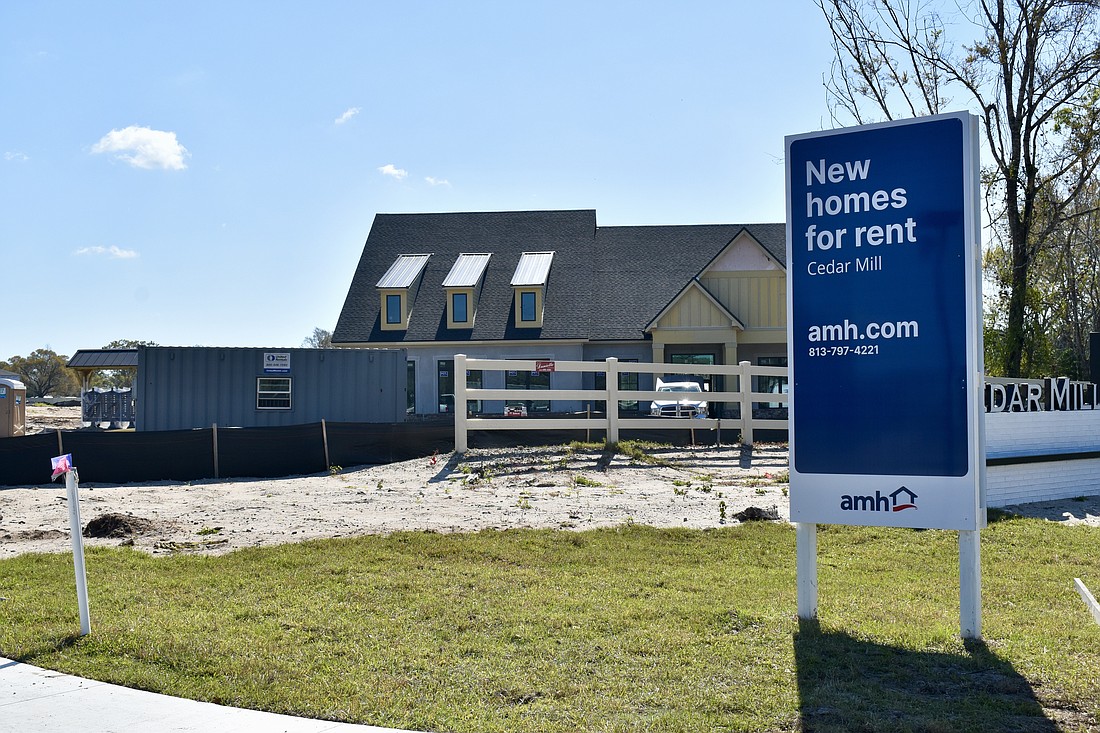- December 30, 2024
-
-
Loading

Loading

Although Manatee County commissioners voted to increase impact fees for builders, some residents, along with Commissioner George Kruse, believe the process has been botched.
Myakka resident David Dean told commissioners at the Aug. 8 Land Use meeting that "we John Q Public" will have to pick up the tab for insufficient impact fees.
Kruse agreed, saying the Manatee County Commission's refusal to seek higher fees will cost citizens about $585 million over the next five years.
Impact fees are charged to developers on any new residential or commercial project. The fees offset the cost of building roads, parks, schools and emergency services those projects will require. By state law, impact fees can only be raised once every four years (although the raise can be divided throughout the four-year period).
In Manatee County, impact fees will now increase by 12.5% each year for the next four years.
Dean attended the meeting because, as a taxpayer, he said he doesn’t want to end up paying the cost of all the things necessary to deal with the county's growth.
Kruse said commissioners could have taken measures to increase impact fees beyond 50% by establishing “extenuating circumstances” that the state could either approve or deny.
Kruse made a motion to direct staff to prepare an extenuating circumstances report, but no other commissioner would second it.
Commission Chair Mike Rahn, along with Commissioners Amanda Ballard and Jason Bearden, expressed concern about a change in legislation that will require an updated study to be adopted within one year of the increase.
The study the county is working with could now expire as of Oct. 1 because the last update was done in 2023.
Nilgun Kamp with Benesch, the firm that completed the 2023 study update, said commissioners could have explored extenuating circumstances even with the deadline approaching.
“Oct. 1 is still a month and a half away, so you could probably explore that option (extenuating circumstances), as well,” Kamp said. “It’s just a deadline to keep in mind.”
Rahn said he was comfortable with the increase. He understands that impact fees are a “necessary evil” but is opposed to them across the board because he sees them as another tax on citizens.
“Any builder or developer in Manatee County has never paid an impact fee,” Rahn said. “They write the check, but they pass it onto the homeowner.”
Rahn said the passing down of impact fees affects local businesses, too.
“We’re going to price them out,” he said. “Why would I bring my business here if I have to pay all these fees just to open?”
Kruse argued that without increasing the fees to the maximum amount of the study, not just new homeowners and business owners, but every resident in Manatee County will be saddled with the cost of building infrastructure in East County.
Manatee County resident Pat Simmons said the commission is pricing senior citizens and those with disabilities out of the county by not forcing developers to pay their fair share.
“People west of (Interstate) 75 shouldn’t be paying for what’s going on in Lakewood Ranch,” she said.
From the dais, Kruse told his fellow commissioners that since the last hearing in February, they were all given “concrete, quantifiable proof” that the proposed increase would not be enough to cover the cost of Manatee County’s growth.
The proof, Kruse said, came from CFO Sheila McLean and Public Works Director Chad Butzow in June when they presented the FY2025 budget and FY2025-2029 Capital Improvement Plan.
McLean suggested the county float $300 million more in bonds to bridge a gap in infrastructure spending. Butzow showed commissioners a list of over $200 million worth of CIP projects that are being deferred.
Commissioner Ray Turner said the CIP shortfall is due to the board inheriting a backlog of projects, but they’re finding ways to manage that.
“There was a significant CIP budget that was reallocated prior to any of us being on the board,” he said. “I think that’s created a lot of the challenge. We’re having to redo the (Fort Hamer) bridge and all these different things.”
Rahn noted that the majority of projects on the deferred list were only pushed back a year or two and said the projects will still be funded.
Dean wasn’t satisfied with the board’s arguments. He said he knew the vote was a “foregone conclusion” walking into the meeting. But he said after 30 years of living in Manatee County, the arrogance and corruption of the current board compelled him to speak up.
“Carlos Beruff (owner of Medallion Homes) is not satisfied with just getting his developments built, but it’s every issue, and (commissioners) do what he wants,” Dean said. “They deliberately stalled this (fee increase), and now they don’t have time. How convenient.”
The first updated impact fee study that went unadopted was in 2020. The most recently updated impact fee study was first presented to the board in April 2023.